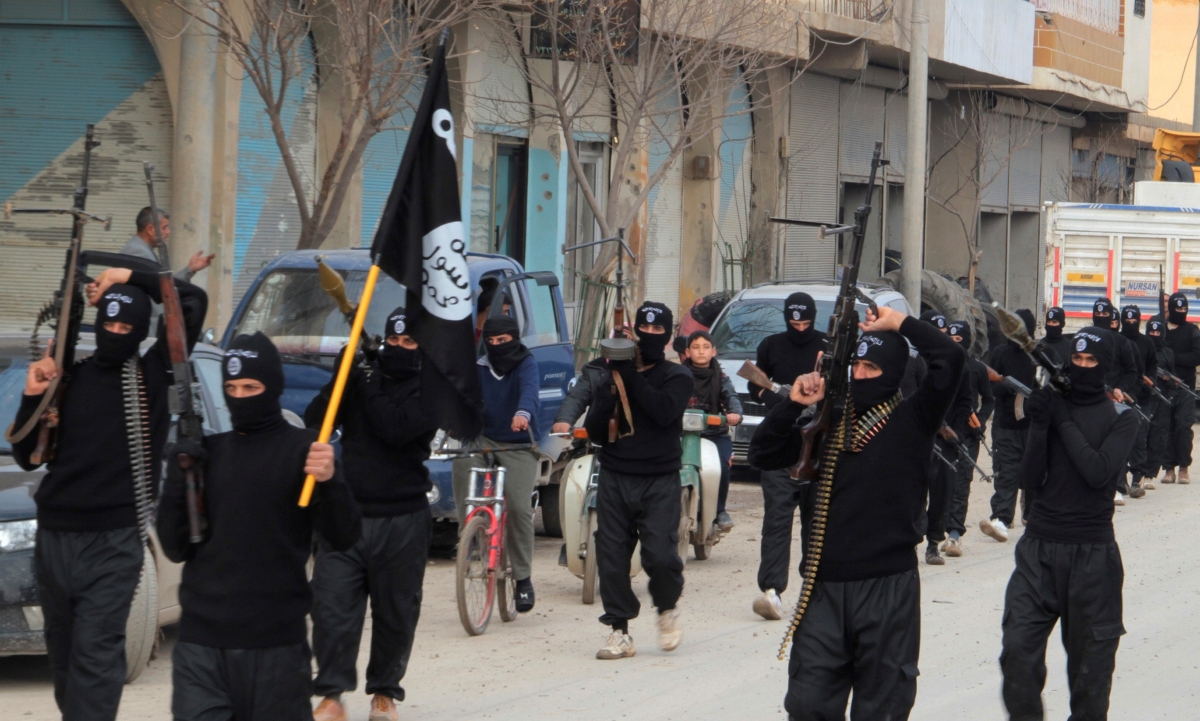AhlulBayt News Agency (ABNA): ISIS terrorist group's remnants attacked the Iraqi federal police forces in Tal Satih village of Rashad county in Kirkuk on September 5, killing 13. Along with these attacks, the terrorist fighters made tangible movements in Nineveh province, launching several limited attacks that killed 2 police officers. Following the incidents, reports said the Iraqi National Security Council held an emergency meeting led by Prime Minister Mustafa al-Kadhimi.
During the meeting, the PM stressed that the enemy's capabilities have been "weakened," but mismanagement and sometimes negligence in the work of military commanders lead to some violations. Therefore new mechanisms need to be put in place to prevent a recurrence of security incidents. He also stressed the need to activate the role of the intelligence services and establish effective coordination mechanisms between the various security and military institutions to prevent ISIS actions, and called for the formation of a committee to investigate the attacks and prevent more.
What grabs the attention about the ISIS attacks in Iraq is that they are taking place as in a short period after the US finalized its withdrawal from Afghanistan; the Taliban took control of the Central Asian country. The intensified ISIS attacks bring to mind a similar scenario. Here is a question: Are ISIS attacks independent or there are secret hands are coordinating the group's fresh operations? What is the goal behind such attacks in the current conditions?
Political parties insist Western-Arab hands are behind ISIS attacks
Whether ISIS attacks are independent or there are hidden foreign hands behind them is an easy question to answer. When in 2014 the terrorist group emerged in Iraq and Syria, various documents proved Western-Arab-Israeli backing to it. In the new conditions, the same camp is playing ISIS card to realize its own goals. But this time, just unlike before, all political parties in Iraq know this fact.
"The fact is that the intelligence services of Saudi Arabia and the United Arab Emirates directly manage the terrorists of ISIS," wrote Abu Ali al-Askari, a military spokesman and security official for Kataib Hezbollah movement in Iraq, in a Twitter post. "Those who are negligent to ISIS crimes are accomplices to these crimes. The commanders of Hashd Al-Sha'abi need to take control in northern regions," he added, referring to the voluntary popular forces also known as Popular Mobilization Forces (PMF).
The fact is that in the high ranking political and security posts of the Iraqi government there are some mercenaries serving Western and Arab countries and handing over classified information to the terrorists. A serious investigation to identify these people to foil terrorist plots is undeniably urgent for al-Kadhimi administration.
US trying to echo Afghanistan scenario as last effort for staying in Iraq
In recent months, ISIS attacks on Iraqi security forces and even the group's terrorist operations in cities may have been seen as more of a struggle for muscle flexing and maneuvering, but in the new situation in which Taliban forces have won in Afghanistan, the terrorist group's intensified attacks are worth reading and analyzing in three aspects:
First, the Western media and Arab minions of the US in the region try to promote the idea that Taliban's victory model can be inspiring for ISIS and the group in a not-too-distant future will organize its forces and launch its struggle to seize Iraqi cities.
Second, the Americans and some Arab countries back ISIS re-emergence efforts, together with the Israeli regime, are trying to instill this media feed into the Iraqi public opinion and political groups that the developments in Afghanistan will be repeated in Iraq and ISIS will soon control different cities in this country. In other words, their media campaign is based on a scenario painting Taliban victory repeatable in Iraq. Their final goal is to make ISIS an unavoidable reality for the Iraqis.
Third, by supporting ISIS loom, the Americans brew the excuse necessary for their military stay in Iraq. They seek to make it a reality to the Iraqis that if they withdraw, 2014 will repeat itself with ISIS re-emergence, and that the Iraqi forces cannot defend the country alone. This has been a highly known US strategy based on which Washington arranges crisis and security vacuum to create a need for military deployment.
In recent years, the US more than once generated crisis to justify its military presence in Iraq and block implementation of Iraqi parliament's foreign forces expulsion bill, approved on January 5, 2020, following assassination of top anti-terror commanders General Qassem Soleimani of Iran and Abu Mahdi al-Muhandis of Iraq by an American drone strike at Baghdad International Airport.
But pieces of evidence show that the Americans will, again, fail. After all, now it is clear to all that it is the Iraqi army and PMF that resisted ISIS push and defeated it eventually in 2017. Now the PMF military might and political basis allow it crush ISIS whenever and wherever they clash. The Iraqi public are diligent and know that Washington's plans never serve their security and interests.
/129

